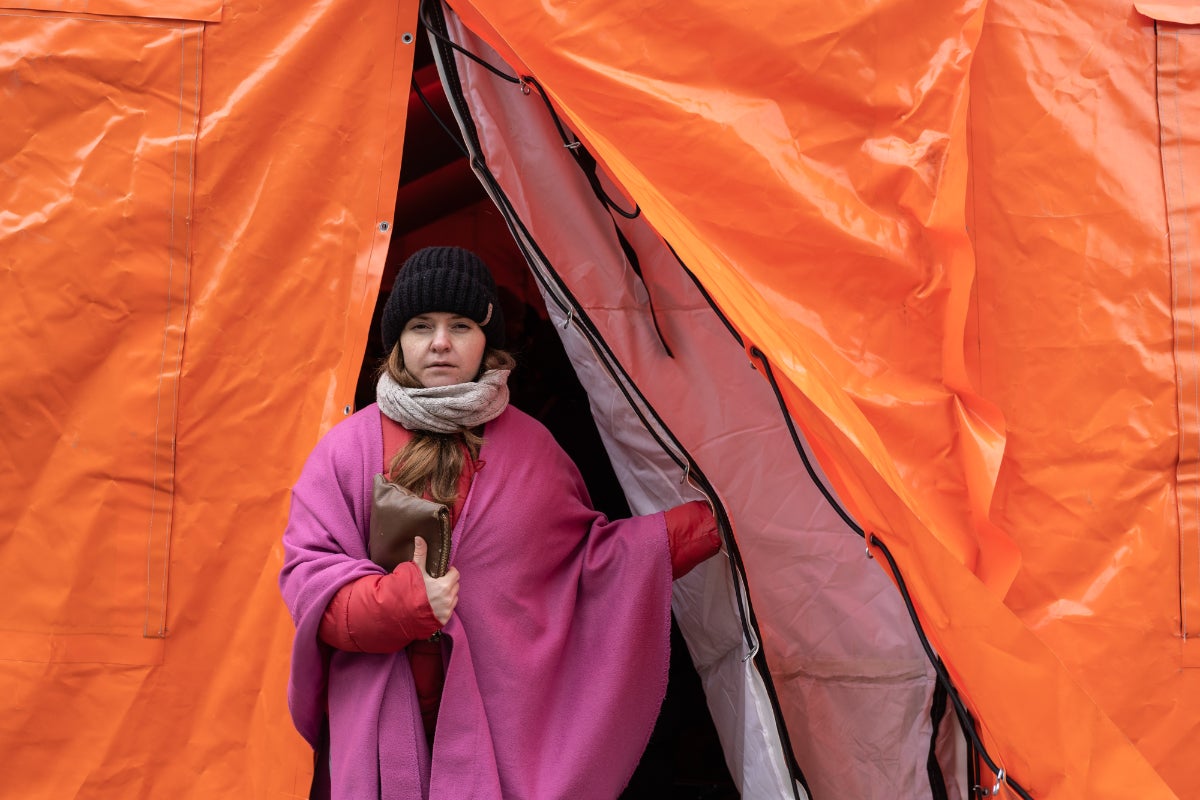
Humanitarian Action

Key global commitments related to gender equality and women’s empowerment in the delivery of humanitarian assistance and recovery include: UN Economic and Social Council resolutions, the Global Compact on Refugees (2018), Grand Bargain 2.0 framework (2021) and the Global Compact on Women, Peace Security and Humanitarian Action launched at the Generation Equality Forum in Paris (2021). Yet despite these commitments, evidence shows that much remains to be done to advance gender mainstreaming and the equal participation of women in humanitarian action.
With Russia’s full-scale invasion of Ukraine and the earthquakes in Türkiye among other crises in the region, closing the gender gap in humanitarian action and ensuring that gender is actively mainstreamed in crisis response is central to the work of UN Women in Europe and Central Asia.
Of the over 8 million people who have fled from Ukraine since 24 February 2022, women and children make up approximately 90 per cent of the population of refugees. Women and girls have felt the uniquely gendered impacts of the crisis on all aspects of daily life. Likewise, following the twin earthquakes in Türkiye, women have faced specifically gendered risks, such as increased risks of gender-based violence. At the same time, women and girls have also demonstrated powerful agency, stepping up to meet the needs of their communities.
When women are included in humanitarian action, entire communities benefit. Yet women and girls are often excluded from decision-making processes that shape the response strategies that affect their ability and that of their communities to recover from crises. Women must be included in decision-making about the forms of assistance, means of delivery, and the provision of the protection and economic and social empowerment opportunities they need so that they can be agents of change.
Mandate of UN Women in Humanitarian contexts:
UN Women fills an important role in strengthening the focus on gender equality and the empowerment of women in humanitarian action, including to consider protection needs. UN Women established a Humanitarian Unit in October 2012 within its Programme Division in New York to consolidate and support humanitarian work, including in disaster risk reduction, response, preparedness, risk prevention and mitigation, at the global, regional and national levels. The new UN Women Humanitarian Strategy 2022-2025 reaffirms UN Women’s commitment to “address the persistent challenges in achieving gender equality and the empowerment of women and girls through visible and transformative change in the humanitarian-development-peace continuum”. As such, UN Women Europe and Central Asia is actively working on implementing UN Women’s triple mandate in humanitarian contexts throughout the region.
Resources
- Regional Gender Analysis
- Rapid Gender Analysis
- Guidance note on gender responsive assessments
- Türkiye Country Office brief on earthquake impacts and priorities for women and girls
- Her aftermath: The impact of the earthquakes in Türkiye: perspectives of civil society organizations working for the rights of women and girls
- Women Entrepreneurs in the Earthquake Rapid Needs Assessment
- Liminal lives: Gender and diversity assessment of refugees from Ukraine in Moldova after one year of forced displacement
- Brief analysis of the gendered impacts of the crisis in Ukraine: a focus on Moldova